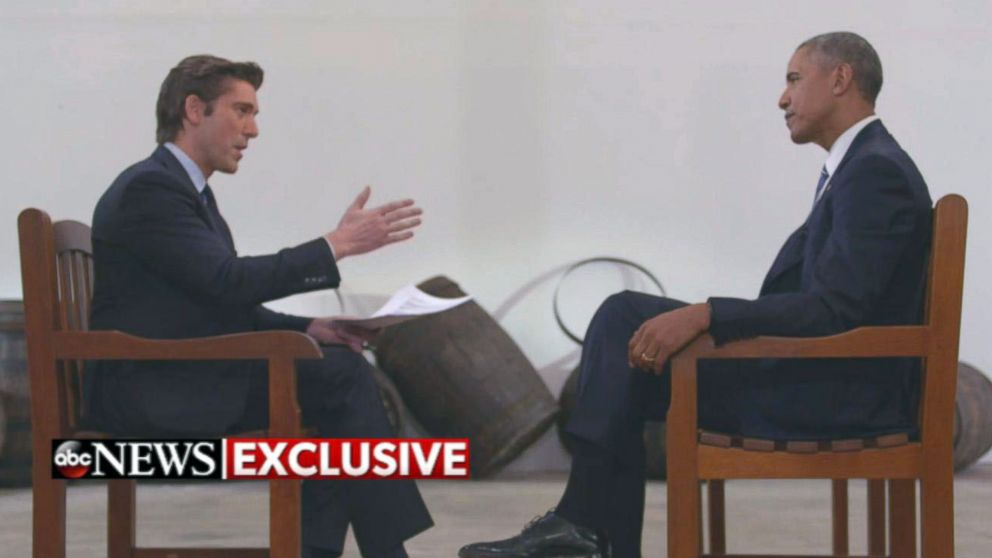Exclusive: Obama Says Cuban Leader Castro 'Truly Wants Change'
— -- After meeting with President Raul Castro today, President Obama said in an exclusive interview with ABC News' David Muir that he believed the Cuban leader "truly" wanted change in the island nation and that Cuba would become "more prosperous" in the future.
"For 50 years, they have used American aggression or interests in regime change as the excuse for why they had to guard against dissent inside of Cuba. ... As normalization occurs, that excuse is taken away," Obama said. "What I indicated to him is that we can't force changes on Cuba -- but what we can do and will continue to do is to stand up to the rights that we consider to be universal."
The interview aired today on "World News Tonight with David Muir" at 6:30 p.m. ET and will air on "Nightline" at 12:35 a.m. The extended interview will be available online at ABCNews.com
Today, Obama attended bilateral talks with Castro, after an official welcoming ceremony at the presidential palace in the capital of Havana. The president's full day of events in Cuba marked the first time a sitting U.S. president had visited the island nation since Calvin Coolidge arrived by boat 88 years ago.
"I believe that President Castro truly wants change," Obama told Muir today. "I do not believe that President Castro wants to upend the Union Party or the system they have. And I think that's going to require a transition that happens over the course of the next generation of Cubans."
The US commander in chief said that in talks today he'd been clear with Castro that he would not "compare apples and oranges" when discussing the US and Cuba.
"Whenever they hear criticism of the United States, their argument is that 'OK, we may be, in your view, short on some democratic practices. On the other hand, you guys still engage in the death penalty or racial discrimination.' ... They'll tick off a list," Obama said. "Here's the point. ... We should not use our shortcomings as a way of deflecting the kinds of repression that happens here."
He said that in his conversations with Castro, he'd even referred to his own experiences as US president, with protesters demonstrating outside of the White House.
Obama said he considered the demonstrations "part of democracy" and not something to fear.
"My view is that people have a right to express their differences. Now, one of the things I said to President Castro, and I truly believe this, is that if they were less fearful of dissent, then not only might they be able to improve government but I suspect that they could enhance their legitimacy in the eyes of the Cuban people," Obama said. "Better to listen, hear them out. And he may discover that in fact they have something to teach him."
The president's trip comes 15 months after he announced the restoration of diplomatic ties between the U.S. and Cuba. In the last year, U.S. officials have worked to reopen Cuba to America with historic agreements, including direct flight agreements.
Obama also plans to speak to entrepreneurs in the country. Obama is joined by a massive U.S. delegation during his visit; 39 members of Congress including five Republicans will be following his movements.
The president also plans to address the Cuban people directly in a historic speech Tuesday and will take in an exhibition game between the Tampa Bay Rays and the Cuban National team.
Obama told Muir that with more Americans traveling to Cuba, he expected significant change to come to the country.
"What you're gonna end up seeing is a freer and more prosperous Cuba," he said.




